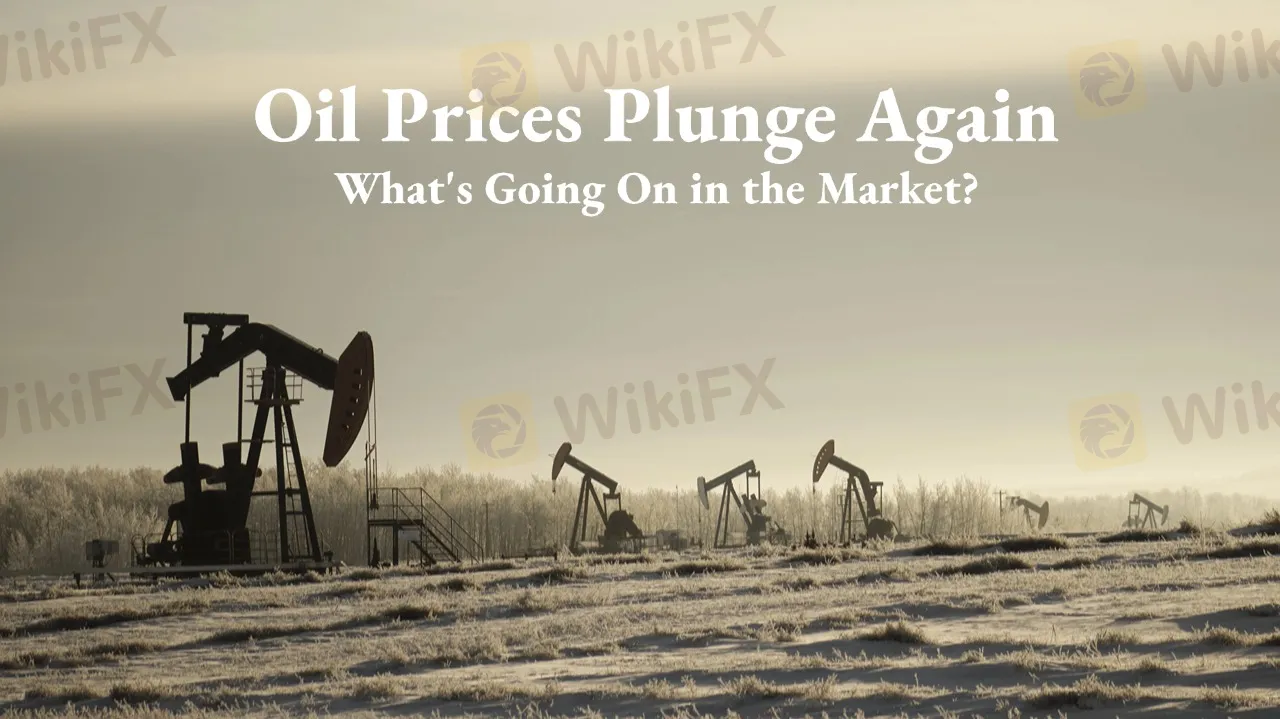简体中文
繁體中文
English
Pусский
日本語
ภาษาไทย
Tiếng Việt
Bahasa Indonesia
Español
हिन्दी
Filippiiniläinen
Français
Deutsch
Português
Türkçe
한국어
العربية
Oil Prices Plunge Again: What's Going On in the Market?
Abstract:Prices tumble to a 4-year low, shaking investor confidence. What’s next for the market?

In early Asian trading on Wednesday, oil prices took another sharp dive. Brent crude for June delivery fell to $60.46 per barrel, while WTI crude slipped below $57 — the lowest level in over four years.
Although prices saw a brief pause the previous day, renewed geopolitical tensions quickly erased any recovery hopes, sending oil back into decline. Despite a slight drop in U.S. crude inventories, this wasnt enough to offset the broader wave of pessimism in the market.
Why Did Oil Prices Drop So Drastically?
The primary driver behind this plunge is mounting concern over the global economy. As trade frictions between major economies escalate, investors are increasingly worried about long-term demand for oil. Uncertainty around Asias energy consumption is amplifying risk-off sentiment.
Meanwhile, although U.S. oil stockpiles fell slightly, several weeks of inventory build-up had already raised red flags about weakening demand — adding more pressure to the downside.
Looking forward, the oil market remains volatile and full of unknowns. Prices could face further turbulence depending on how global trade dynamics unfold and how energy demand shifts across key economies.
With fears of slowing growth intensifying, the risk-averse tone may persist in the oil space. For investors, this is not the time to chase the dip blindly. Instead, carefully assessing exposure and staying flexible with strategy will be key to navigating whats next.

Disclaimer:
The views in this article only represent the author's personal views, and do not constitute investment advice on this platform. This platform does not guarantee the accuracy, completeness and timeliness of the information in the article, and will not be liable for any loss caused by the use of or reliance on the information in the article.
Read more

Why Trade Agreements Matter to Nations
In today’s interconnected world, trade agreements serve as the foundation for stable and predictable international commerce.

Trade Fights Are Heating Up—What Happens Next?
Global financial markets have become increasingly reactive to even minor developments in international trade talks.

Juno Markets Upgrades to FYNXT PAMM
Juno Markets has successfully upgraded its managed account infrastructure by integrating FYNXT’s Percent Allocation Management Module (PAMM) system.

Italy’s CONSOB Blocks Sites of ITradingFX and NEX TRADE in Latest Crackdown
Italy’s Companies and Exchange Commission (CONSOB) has ordered Internet service providers to block access to nine unauthorized investment websites, including “ITradingFX” and “NEX TRADE,” as part of its ongoing effort to curb abusive financial services Consob.
WikiFX Broker
Latest News
"Rate & Reward: Broker Review Contest"
FSRA Sanctions Hayvn Group and CEO for Regulatory Breaches and Misleading Conduct
2024 AI Ad-Blocking Performance Revealed
Why Are More Regulated Brokers Providing Free VPS Services?
SkyLine Guide 2025 Thailand Officially Launched: Judging Panel Formation Underway
Five UK Financial Firms Collapse, FSCS Offers Support for Affected Clients
Why Trade Agreements Matter to Nations
Non-Existent Online Scheme Took Away RM580,000
RM15 Million Gone in Fake Investment Scam
CySEC Issues Investor Alert on Unauthorized Financial Websites
Currency Calculator


